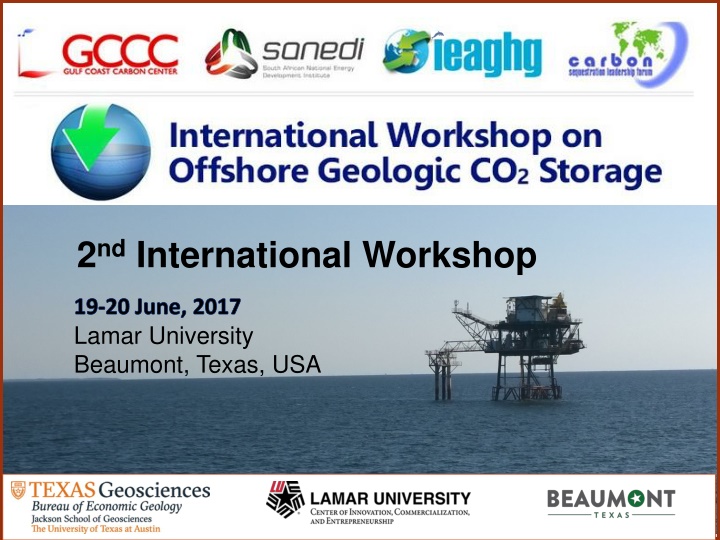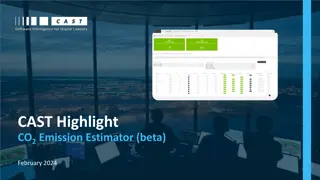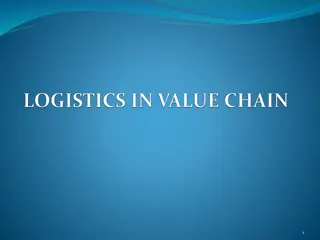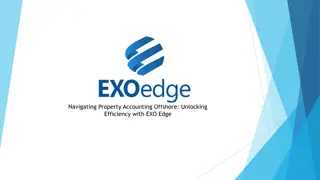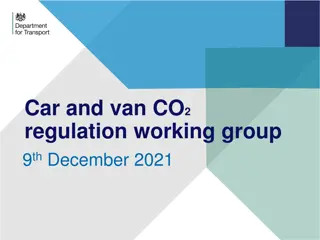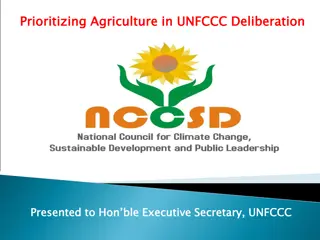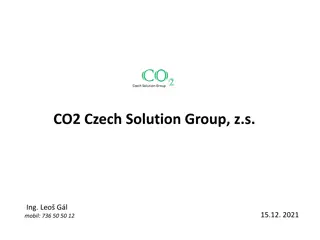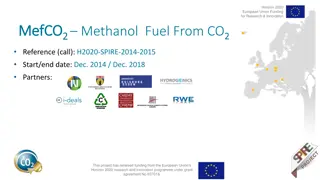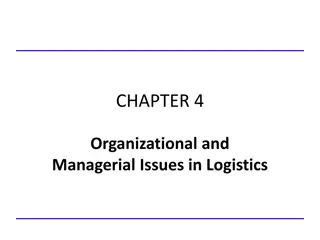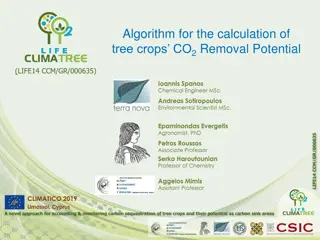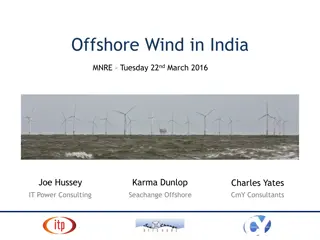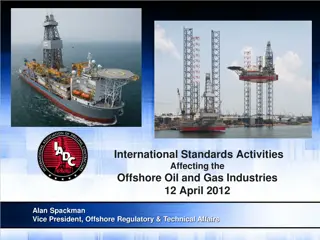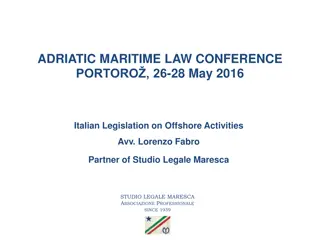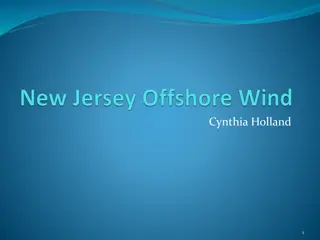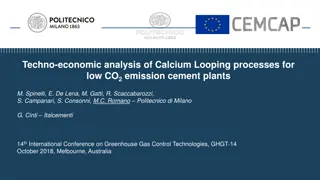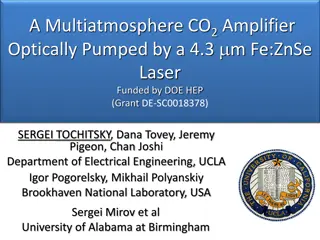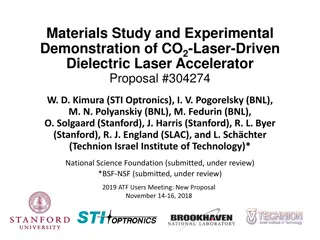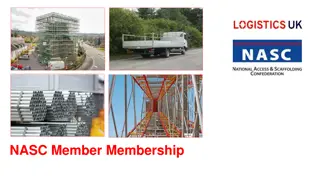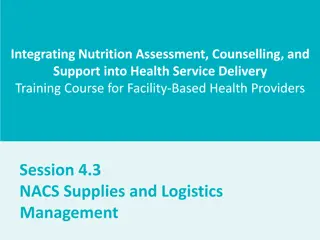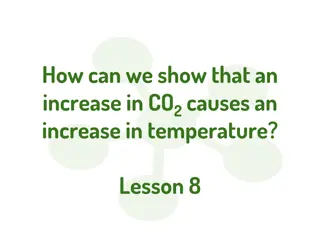International Workshop on Offshore CO2 Storage: Goals, Expectations, Logistics
The International Workshop held in Texas aimed to foster collaboration and knowledge sharing on offshore CO2 storage. Topics included understanding requirements, sharing best practices, and identifying challenges and opportunities for offshore storage. The event highlighted the global potential for CO2 storage and the need for international cooperation in developing offshore storage projects.
Download Presentation

Please find below an Image/Link to download the presentation.
The content on the website is provided AS IS for your information and personal use only. It may not be sold, licensed, or shared on other websites without obtaining consent from the author.If you encounter any issues during the download, it is possible that the publisher has removed the file from their server.
You are allowed to download the files provided on this website for personal or commercial use, subject to the condition that they are used lawfully. All files are the property of their respective owners.
The content on the website is provided AS IS for your information and personal use only. It may not be sold, licensed, or shared on other websites without obtaining consent from the author.
E N D
Presentation Transcript
Goals, expectations, logistics 2nd International Workshop 19-20 June, 2017 Katherine Romanak, Tip Meckel (Gulf Coast Carbon Center) and Tim Dixon (IEAGHG and BEG Honorary Senior Research Fellow) Lamar University Beaumont, Texas, USA
Offshore Potential The global offshore continental shelves represent the largest near-term storage for Gigaton-scale CCS.
CSLF Report on Offshore Geologic CO2 Storage There is a growing wealth of research, development and practical experiences that are relevant to CO2 storage offshore, but this expertise is familiar only to a few specific countries around the world. However there is also significant global potential for offshore CO2 storage, and countries who are not yet active but may become interested in offshore storage, would benefit from knowledge sharing from these existing experiences and expertise. Such international knowledge sharing would be facilitated by international workshops and by international collaborative projects. (CSLF Ministerial Nov 2015: CSLF-T-2015-06)
1st Workshop Aim: To initiate a discussion about the various aspects of offshore transport and storage to build an international community of parties interested in how to do offshore storage. Objectives: 1. To facilitate countries to understand what is required, to share best practice and learnings from experiences 2. To identify their specific issues, challenges, opportunities, etc. 3. To identify synergies, common gaps and goals, and to recommend actions and next steps and opportunities for project collaboration
Organised by the Bureau of Economic Geology (BEG) at The University of Texas at Austin in collaboration with the South African Centre for CCS at SANEDI, IEAGHG and with support from CSLF and UNFCCC s CTCN To facilitate sharing of knowledge and experiences among those who are doing offshore storage and those who may be interested 19-21 April 2016, at the BEG, University of Texas, Austin 13 countries attended (7 developing countries)
Additional information needed to progress toward CCS decision? Storage Needs Storage 14 12 10 8 6 4 2 0 Not relevant Low Moderate High
2nd Workshop Aim: To address and build on the recommendations and topics raised at the first workshop to take offshore storage forward. Continuing theme of how to do . Objectives: Technical deeper-dive into key topics: How to find storage offshore; Technical aspects and experiences of offshore monitoring; CO2-EOR offshore; Infrastructure developments and decisions U.S. developments in offshore storage assessment Conclusions and recommendations Field Trip
Goals, expectations, logistics 2nd International Workshop 19-20 June, 2017 Katherine Romanak, Tip Meckel (Gulf Coast Carbon Center) and Tim Dixon (IEAGHG and BEG Honorary Senior Research Fellow) Lamar University Beaumont, Texas, USA
Steering Committee Tim Dixon, IEAGHG (Chair) Katherine Romanak, BEG (Co- Chair, Host) Susan Hovorka, BEG (Host) Tip Meckel, BEG (Host) Anthony Surridge / Noel Kamrajh, SANEDI (host) John Litynski / Traci Rodosta, US DOE Lars Ingolf Eide, Research Council of Norway Di Zhou, China Academy of Sciences Filip Neele, TNO Paulo Negrais Seabra- Independent Consultant (formerly Petrobras) Ryozo Tanaka, RITE Owain Tucker, Shell Philip Ringrose, Statoil Michael Carpenter, Gassnova Paul Latiolais, Lamar University Thanks to Jennifer Edwards (BEG) and Thonda Harvey (Lamar)
Goals, expectations, logistics 2nd International Workshop 19-20 June, 2017 Katherine Romanak, Tip Meckel (Gulf Coast Carbon Center) and Tim Dixon (IEAGHG and BEG Honorary Senior Research Fellow) Lamar University Beaumont, Texas, USA
